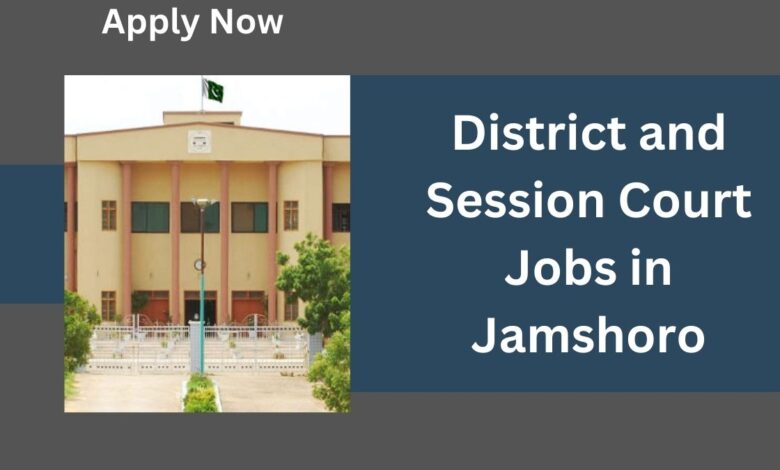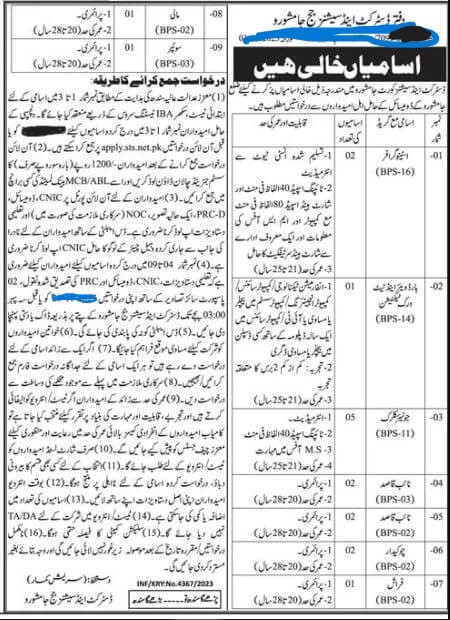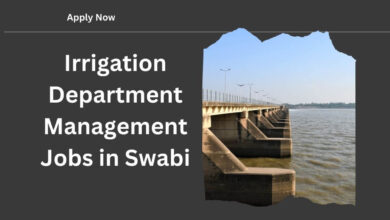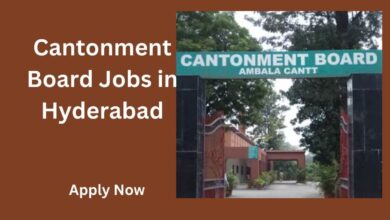District and Session Court Jobs in Jamshoro 2025- Apply Now

It sounds like there are some great government job opportunities available in Jamshoro District, particularly within the legal sector. Positions such as Stenographer, Computer Operator, Junior Clerk, Driver, CCTV Operator, Sweeper, Bailiff, Naib Qasid, Chowkidar, and Malhi could offer various career paths for interested candidates.
If you’re interested in applying, I recommend carefully reviewing the specific requirements for each position. These might include qualifications, experience, age limits, and other important criteria. It’s also a good
Details About District and Session Court Jobs in Jamshoro:
| Industry | Government |
| Hiring Organisation | District & Session Court |
| Jobs Location | Jamshoro, Pakistan |
| Education Requirements | Primary, Middle, Matric, and Intermediate |
| Vacancies | 50+ |
| Newspaper | Express. Jang |
Available Positions:
- 02 Stenographers (BPS-16)
- 01 Hardware & Network Technician (BPS-14)
- 05 Junior Clerks (BPS-11)
- 02 Naib Qasid (BPS-03)
- 02 Naib Qasid (BPS-02)
- 02 Chowkidar (BPS-02)
- 01 Farash (BPS-02)
- 01 Mali (BPS-02)
- 01 Sweeper (BPS-03)
Check Also: Sindh Government Jobs 2025– Apply Online
Benefits of District and Session Court Jobs in Jamshoro:
- Job Security: Government positions, especially in the judiciary, often come with significant job stability.
- Competitive Compensation: Court employees enjoy competitive salaries, often with allowances and regular raises.
- Health Insurance: Coverage that may include both medical and dental benefits.
- Pension Plans: Providing post-retirement financial security.
- Leave Entitlement: Various types of leave like maternity, medical, and annual leave.
- Training and Development: Opportunities for professional growth and staying current with legal trends.
- Professional Advancement: Clear promotion paths and career development in the judiciary.
- Legal Expertise and Practical Experience: Hands-on learning and experience within the legal field.
- Work-Life Balance: A more balanced lifestyle, despite the demanding nature of the job.
- Social Impact: Contributing to justice and society through the legal system.
- Opportunities for Networking: Building connections within the legal community.
- Public Service Benefits: A sense of fulfillment from serving in the public sector.
Advertisement:

Frequently Asked Questions:
-
What are district and session courts?
District Court is the appellate court for civil judge decisions in civil matters. The Sessions Court acts as the appellate authority for orders given by Magistrates in criminal matters.
-
What are session courts in Pakistan?
In Pakistan, the Court of Session acts as the principal court of first instance for criminal cases, where the vast majority of severe criminal cases are tried. In addition, the court has restricted appellate and civil jurisdiction.
-
What is the district and session court of Pakistan?
It is also referred to as sessions court when it handles criminal cases and district court when it handles civil cases. When it comes to executive matters, the appropriate district and session judge is consulted. Each province’s highest court has appellate power to its inferior courts.




